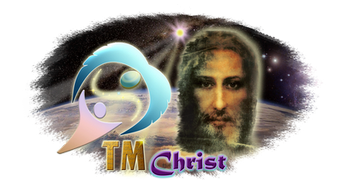(Ctd from Post #151)
Before we get into designing a democratic process that recovers the lost quality of influence that citizens had with their congressional representatives between 1789 and 1911, we need to understand the “original cause” of social change that is everywhere around us. It is that stream of human activity that an adaptable design of democratic process must tap into in order to become a sustainable democracy.
The Drive of Social Change. What drove the incessant social change that erupted in the 1800s and 1900s are the same causes that push social change today—the incessant urgings of the three core values that have sustained our species for approximately 250,000 years or more: Our individual yearning for a better quality of life, to grow into the innate potential that we brought into life, and our urge to equally enjoy an improving quality of life and to explore our innate potential as anyone else would or could. They have always been there waiting for opportunities to come into expression.
The Motive Power behind Social Change. Dr. Abraham Maslow stated that as basic human needs are fulfilled more evolved needs become apparent to form a hierarchy of needs. Collectively, as individuals improve the quality of their life, to grow into their innate potential, they create social change through their “demand” for new avenues and new means to fulfill their evolving hierarchy of needs. Perceptive marketers strive to be in touch and in tune with the “demand” of the public to assess any changes in the market for the potential of new services and products.
What we define as social change is the collective movement of vast numbers of people who are striving to satisfy their evolving hierarchy of needs based on the same value system that our ancestors used tens of thousands of years ago. Every person of every race, culture, ethnicity, nationality, and gender has these three values within them that underlie all of the decisions they make in their life. Each person interprets those values according to their personally determined hierarchy of needs. While individual interpretations may vary wildly from one person to the next, vast numbers of people provide slow-moving, ongoing trends that stabilize the movement of a society over time. Social instability occurs when vast numbers of people sense, simultaneously, that their ability to satisfy their needs is immanently threatened.
The Motive Power behind Political Change. As vast numbers of the public sense that their current political processes do not support an improving quality of life for them, do not promote the individual to grow into their potential, and do not support them to do both, those vast numbers become less and less satisfied with the status quo. In a democracy, citizens are used to exercising their right of self-determination in all things that affect them, including their government. They yearn for a return to the quality relationship their great grandparents had with their congressional public executives. ##
Before we get into designing a democratic process that recovers the lost quality of influence that citizens had with their congressional representatives between 1789 and 1911, we need to understand the “original cause” of social change that is everywhere around us. It is that stream of human activity that an adaptable design of democratic process must tap into in order to become a sustainable democracy.
The Drive of Social Change. What drove the incessant social change that erupted in the 1800s and 1900s are the same causes that push social change today—the incessant urgings of the three core values that have sustained our species for approximately 250,000 years or more: Our individual yearning for a better quality of life, to grow into the innate potential that we brought into life, and our urge to equally enjoy an improving quality of life and to explore our innate potential as anyone else would or could. They have always been there waiting for opportunities to come into expression.
The Motive Power behind Social Change. Dr. Abraham Maslow stated that as basic human needs are fulfilled more evolved needs become apparent to form a hierarchy of needs. Collectively, as individuals improve the quality of their life, to grow into their innate potential, they create social change through their “demand” for new avenues and new means to fulfill their evolving hierarchy of needs. Perceptive marketers strive to be in touch and in tune with the “demand” of the public to assess any changes in the market for the potential of new services and products.
What we define as social change is the collective movement of vast numbers of people who are striving to satisfy their evolving hierarchy of needs based on the same value system that our ancestors used tens of thousands of years ago. Every person of every race, culture, ethnicity, nationality, and gender has these three values within them that underlie all of the decisions they make in their life. Each person interprets those values according to their personally determined hierarchy of needs. While individual interpretations may vary wildly from one person to the next, vast numbers of people provide slow-moving, ongoing trends that stabilize the movement of a society over time. Social instability occurs when vast numbers of people sense, simultaneously, that their ability to satisfy their needs is immanently threatened.
The Motive Power behind Political Change. As vast numbers of the public sense that their current political processes do not support an improving quality of life for them, do not promote the individual to grow into their potential, and do not support them to do both, those vast numbers become less and less satisfied with the status quo. In a democracy, citizens are used to exercising their right of self-determination in all things that affect them, including their government. They yearn for a return to the quality relationship their great grandparents had with their congressional public executives. ##
